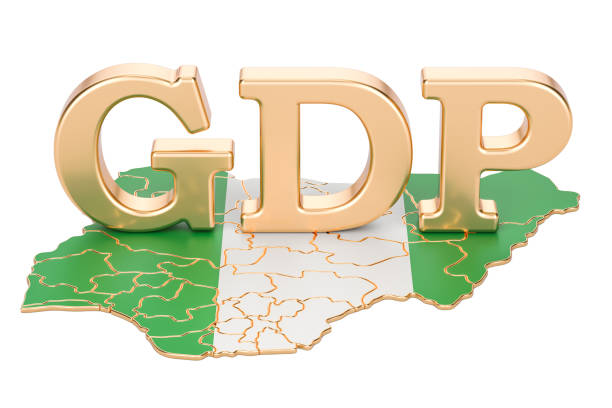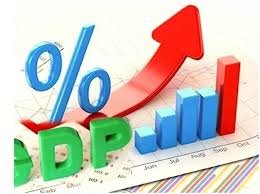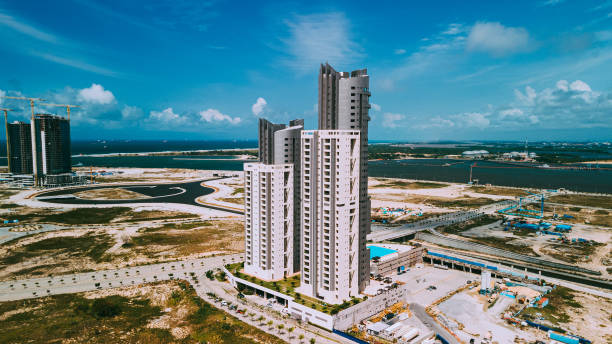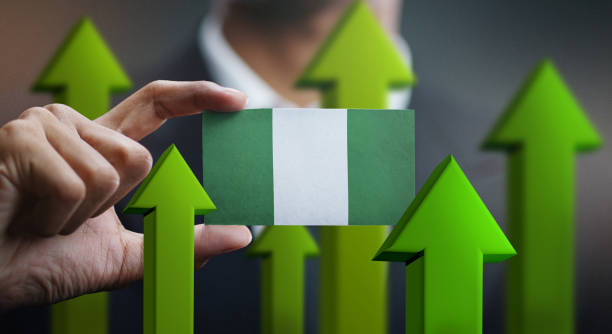Nigeria’s economy (GDP) grew by 3.13% year-on-year in real terms in the first quarter of 2025. This is according to the National Bureau of Statistics (NBS) latest report released on Monday.
This marks a notable improvement from the 2.27% recorded in Q1 2024, signaling a steady economic rebound driven by strength in the services and industry sectors.
In nominal terms, Nigeria’s Gross Domestic Product (GDP) surged to ₦94.05 trillion from ₦79.51 trillion in the same period last year, reflecting an 18.30% year-on-year increase.
The Q1 2025 data is also the first to reflect the NBS’s newly rebased national accounts, which now use 2019 as the base year, replacing 2010.
Services Sector
The services sector continues to lead growth, expanding by 4.33% and contributing 57.50% to real GDP.
Telecommunications and Information Services recorded 7.40% growth and accounted for 10.59% of total GDP, up from 10.17% in Q1 2024.
The Finance and Insurance sector posted impressive real growth of 15.03%, buoyed by increased digital banking, fintech innovation, and wider financial inclusion.
Trade, Real Estate, and Transport also made significant contributions, with trade growing by 1.78%, Real Estate rose 4.61% and transportation surging by 14.08% on the back of broad improvements across road, rail, air, and waterways.
Industrial Sector
The industrial sector posted a year-on-year growth of 3.42%, an improvement from 2.35% in Q1 2024. Oil production rose slightly to 1.62 million barrels per day (mbpd), compared to 1.57 mbpd a year earlier, but the oil sector’s real GDP growth decelerated to 1.87%, down from 4.71%, with its share of GDP falling to 3.97%.
Manufacturing Sector
Manufacturing saw a modest real growth of 1.69%, led by Food, Beverage & Tobacco (3.48%), Chemical & Pharmaceutical Products (5.33%), and Cement (4.94%).
The sector contributed 9.62% to real GDP, while construction remained robust with 6.21% growth, reflecting government-backed infrastructure and real estate projects.
Agriculture Sector
Despite employing a significant portion of the population, agriculture posted a marginal real growth of 0.07%, a recovery from the -1.79% contraction in Q1 2024, yet far below potential. The sector’s nominal GDP contribution slipped to 19.40% from 20.86% a year earlier.
Crop production expanded by 3.71%, but other subsectors such as livestock, forestry, and fishing saw uneven results. The sector remains weighed down by insecurity in farming regions and poor mechanization, hindering productivity and sectoral impact.
Emerging Sectors
Several other sectors delivered standout performances. Electricity, Gas, Steam, and Air Conditioning Supply jumped by 18.65%, while Water Supply and Waste Management expanded by 9.43%.
The Arts, Entertainment, and Recreation sector grew 9.63%, supported by digital content growth and increased consumer spending.
Accommodation and Food Services rose by 2.65%, reflecting improving consumer confidence.
However, Other Services shrank by 6.13%, and Professional, scientific and technical Services slowed to 2.53%, down from 5.71% a year ago.
GDP Rebasing Reveals Stronger, More Diversified Nigerian Economy
The rebased figures reveal a much larger economy in nominal terms than previous estimates, with Nigeria’s nominal GDP at market prices at N205.09 trillion in 2019, N213.64 trillion in 2020, N243.30 trillion in 2021, N274.23 trillion in 2022, N314.02 trillion in 2023, and N372.82 trillion in 2024.
Compared to the old 2010 base year estimates, the rebasing shows a 41.7% increase in nominal GDP in 2019, with consistent gains of over 34% in subsequent years.
In real terms, GDP growth under the new base was estimated at -6.96% in 2020 during the pandemic, followed by 0.95% in 2021, 4.32% in 2022, 3.04% in 2023, and 3.38% in 2024.
The sectoral composition of the economy has also shifted. Agriculture and services now account for larger shares of the GDP, up 25.83% from 22.12%, while services increased to 53.09% from 50.22%, and industry dropped to 21.08% from 27.65%.
Another key finding is the re-ranking of economic sectors. Real estate now ranks third in GDP contribution, overtaking crude oil and gas, thanks to improved coverage of the informal real estate segment.
The top five economic activities are now crop production (17.58%), trade (17.42%), real estate (10.78%), telecommunications (6.78%), and crude petroleum and natural gas (5.85%).
Economy on Firmer Ground, But Challenges Remain
Nigeria’s Q1 2025 GDP data paints a picture of an economy regaining momentum, with services and non-oil industry sectors playing leading roles.
However, the subdued performance in agriculture and the slowdown in oil growth highlight structural weaknesses that require long-term policy focus.




















